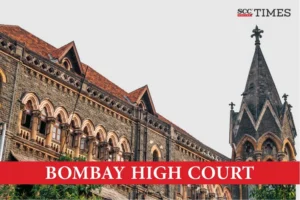Bombay High Court: In a writ petition filed by the State against the judgment of Maharashtra Administrative Tribunal (“MAT”), reinstating the respondent Government employee on probation whose services were terminated on the grounds of misconduct, the Division Bench comprising of AS Chandurkar* and Jitendra Jain, JJ., upheld the MAT judgment holding that the petitioners did not follow the Maharashtra Engineering Administrative Service (Recruitment) Rules, 2017 (“2017 Rules”), under which the appointment of the respondent was made. The Court found that the Government order terminating the services of the respondent was stigmatic in nature and no enquiry was conducted vis-a-vis the respondent’s alleged misconduct as mandated by the 2017 Rules.
Background
The respondent was appointed as an Assistant Secretary (Technical) at the Maharashtra State Board for Technical Education (“MSBTE”) in January 2021 for a period of two years on probation. The appointment was governed by the Maharashtra Engineering Administrative Service (Recruitment) Rules, 2017 (“2017 Rules”). In December 2022, a proposal was moved by the MSBTE to discharge the respondent from service. The matter was considered by one of the petitioners, and in May 2023, it was decided that the respondent’s services be discontinued for being unsatisfactory, whereby, the MSBTE ordered the termination of the respondent.
This order was challenged before the MAT, wherein it was set aside due to being unsustainable in law; the MSBTE was directed to reinstate the respondent and pay back wages.
The MAT decision was challenged by the petitioners in the instant Court through a writ petition under Article 226 of the Constitution.
The respondent contended that the order of termination referred to a Government Order (“Order”) passed by the Department of Higher and Technical Education on the same day as the termination, which stated that the respondent had been found guilty of serious acts of misconduct and therefore it proposed to terminate her services. the State perused the Order, and it was revealed that the same was punitive and the services of the respondent were terminated without an enquiry. Therefore, the impugned order was stigmatic in nature considering that no enquiry was held.
Court’s analysis and judgment
The Court first relied on the Supreme Court case of Dipti Prakash Banerjee v. Satyendra Nath Bose National Centre for Basic Sciences, Calcutta, (1999) 3 SCC 60, cited by the respondent, wherein it was held that material amounting to “stigma” need not be contained in the order of termination but may also be contained in an order or proceeding referred to in the order of termination or in an annexure thereto. This would vitiate the order of termination since a prospective employer would seek all material/documents referred to in the order of termination.
The Court Further relied on the case of Anoop Jaiswal v. Government of India, (1984) 2 SCC 369, it was held that if any report or recommendation of a superior authority is the basis or foundation for the order of discharge, it would have to be read along with such report or recommendation for determining its true character.
The Court noted that the Order stated the respondent disobeyed the orders of her superiors, her demeanour was rude, she used to find fault in her seniors for the mistakes committed and pressurised them; and all that amounted to serious acts of misconduct. Despite instructions to improve her conduct, no improvement was witnessed. Hence, the Order proposed her termination, based on which the MSBTE terminated her services.
The Court noted that the order of termination of the respondent could not be treated as a termination simplicitor, but a stigmatic termination order. Therefore, the Order will have to treated as a part of the order of termination issued by MSBTE.
The Court perused the impugned decision rendered by MAT where it referred to a Government Resolution (29-02-2016; Clauses 6 and 7) and had found that the petitioners were empowered to terminate the services of a probationer in case of misconduct, provided that such misconduct is proved after an opportunity of being heard is availed to the respondent. However, the same was not followed by the petitioners.
During the pendency of the instant proceedings, the petitioners had made a statement about their willingness to withdraw the order of termination from May 2023, and issue a fresh termination order, however, the same was considered unfound by the Court.
The Court therefore upheld the judgment of the MAT and clarified that its decision shall not be construed as an affirmation of the services rendered by the respondent till 19-05-2023 as satisfactory. However, the Court upon the perusal of Rule 7 of the afore-stated 2017 Rules, found that the initial appointment of the respondent was on probation for a period of two years, extended by a year. Therefore, she was informed to continue probation post reinstatement until the completion of three years in total now, to have her appointment confirmed.
At this stage the Additional Government Pleader for the petitioners prayed for the stay on judgment for eight weeks, however the Court ordered that the judgment shall operate on four weeks from the official uploading of the judgment.
[State of Maharashtra v. Taramati Santosh Taji, 2024 SCC OnLine Bom 1349, decided on 10-05-2024]
*Judgment by: Justice AS Chandurkar
Advocates who appeared in this case:
Advocates for the Petitioners: L.M. Acharya, Special Counsel, N.C. Walimbe, Additional Government Pleader and A.R. Deolekar, Assistant Government Pleader
Advocates for the Respondent: Nitin Gaware Patil with Sahil Choudhari

